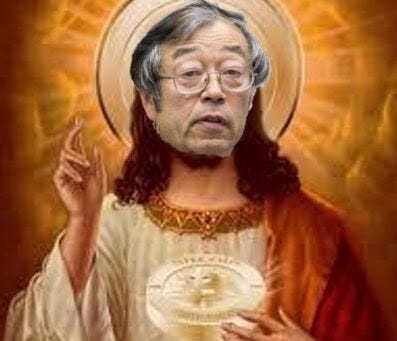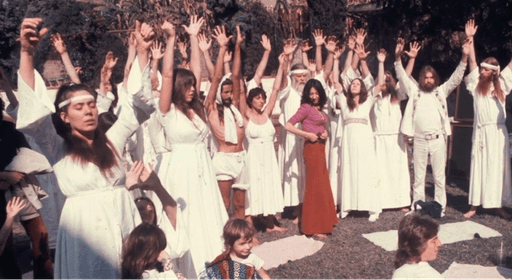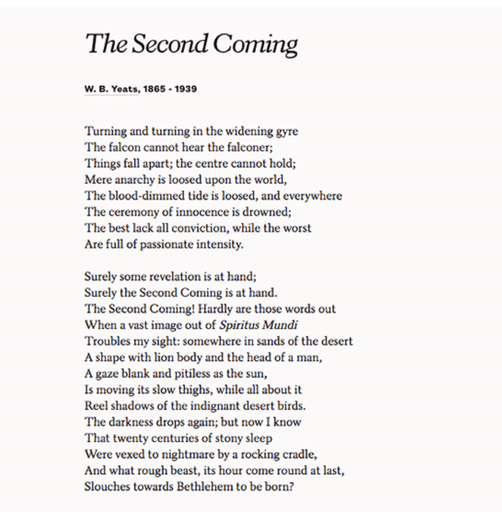With this framing, I’m interested in innovations around the things (or institutions) that bind us together. This might manifest as the decoupling of citizenship from physical state – cloud nations and network states. It may also mean the resurgence of existing religion or neo-philosophical movements. It might take shape as cult-like devotion to a product.
During World War I, Woodrow Wilson promoted the concept of self-determination: the idea that a nation (a group of people with similar political ambitions) may seek to create its own independent government or state. Post-War, new states formed out of the collapsed empires of Europe (Poland, Finland, Yugoslavia, Czechoslovakia, and more) with an emphasis on self sovereignty. Following the logic of self-determination, Network States feel like a tangible consideration in terms of new, legitimate formats for political and social coordination. Network states start as startup societies built on top of a community gathering online around an innovative moral principle. There is also the promise of productivity unlock. In the same way that there is a competitive market for products and services, there should be a competitive market for citizenship, with different environments / frameworks (or fewer frameworks) conducive to building in specific industries. I like the way that Niklas Anzinger characterizes network states in terms of base layers for innovation:
Governance, rules, or institutions are the base layer of society. Businesses and human cooperation are downstream of the legal and governance base layer. The base layer is the legal and political operating system of society. Base layer technology is mostly provided by governments. If base layers were an industry, it would consume about 30% of global GDP. It is the largest and most important industry in the world.
Startup cities are a means for experimentation around base layer structures, which should result in new civil frameworks conducive to productive company building and innovation. They also lower the switching costs of citizenship, promoting a higher quality product / service offering from a nation to its citizens.
In the startup city stack, some of the things I’m contemplating are:
System of law and system of common ritual as first features.
Community as a means of leverage for nation building (i.e. Praxis) over land-first developments recruiting citizens (i.e. Prospera).
What does it mean to be a full stack nation? Is verticalization required? Can citizenship as a product decouple from base layer infrastructure (i.e. application vs. infrastructure play in software)? There are companies attempting to play the platform game in this sense, like Nation3.
What role does a central belief system / the supernatural play in governance? Are philosophy and law interchangeable? How literal vs. figurative can the one commandment be? Can citizenship act as a new distribution format for religion?
Why does physical presence have to be the ultimate objective? Is shared territory necessary? Products and services built on top of the operating system that is a digital society (where people can opt out of products / services provided by local governments) feels like a compelling case in itself, aside from the physical territory feature.
On the above note, perhaps physical ramifications for good / bad behavior are required (i.e. prison). Is the threat of losing citizenship enough to deter bad actors? I’m not sure this is enough. If not physical harm, what are the deterrents / punishments for malicious action?
This is a messy framework that I’ll continue to build out. If not already apparent, I’m concerned by the growing fragility of society around me. I’m not advocating for the revival of existing frameworks or traditions. The future of governance, the future of spirituality, tackling identity confusion at large - there is immense potential for new infrastructure to be built around these things and I believe the environment today is one that will intensely cultivate this progression.
If you’re thinking about these themes or working in this realm, email / dm me and I'd love to talk.
Katherine Boyle tweeted this recently and it went viral.
The referenced WSJ article paints an unsettling picture: patriotism, religion, community (all premised on the idea of shared value) are at an all-time low. The only priority that has grown in importance in the last quarter century is money, which was cited as very important by 43%, up from 31% in 1998. Self optimization is at an all-time high. You are not enough.
My mind jumps to this poem:
With this framing, I’m interested in innovations around the things (or institutions) that bind us together. This might manifest as the decoupling of citizenship from physical state – cloud nations and network states. It may also mean the resurgence of existing religion or neo-philosophical movements. It might take shape as cult-like devotion to a product.
During World War I, Woodrow Wilson promoted the concept of self-determination: the idea that a nation (a group of people with similar political ambitions) may seek to create its own independent government or state. Post-War, new states formed out of the collapsed empires of Europe (Poland, Finland, Yugoslavia, Czechoslovakia, and more) with an emphasis on self sovereignty. Following the logic of self-determination, Network States feel like a tangible consideration in terms of new, legitimate formats for political and social coordination. Network states start as startup societies built on top of a community gathering online around an innovative moral principle. There is also the promise of productivity unlock. In the same way that there is a competitive market for products and services, there should be a competitive market for citizenship, with different environments / frameworks (or fewer frameworks) conducive to building in specific industries. I like the way that Niklas Anzinger characterizes network states in terms of base layers for innovation:
Governance, rules, or institutions are the base layer of society. Businesses and human cooperation are downstream of the legal and governance base layer. The base layer is the legal and political operating system of society. Base layer technology is mostly provided by governments. If base layers were an industry, it would consume about 30% of global GDP. It is the largest and most important industry in the world.
Startup cities are a means for experimentation around base layer structures, which should result in new civil frameworks conducive to productive company building and innovation. They also lower the switching costs of citizenship, promoting a higher quality product / service offering from a nation to its citizens.
In the startup city stack, some of the things I’m contemplating are:
System of law and system of common ritual as first features.
Community as a means of leverage for nation building (i.e. Praxis) over land-first developments recruiting citizens (i.e. Prospera).
What does it mean to be a full stack nation? Is verticalization required? Can citizenship as a product decouple from base layer infrastructure (i.e. application vs. infrastructure play in software)? There are companies attempting to play the platform game in this sense, like Nation3.
What role does a central belief system / the supernatural play in governance? Are philosophy and law interchangeable? How literal vs. figurative can the one commandment be? Can citizenship act as a new distribution format for religion?
Why does physical presence have to be the ultimate objective? Is shared territory necessary? Products and services built on top of the operating system that is a digital society (where people can opt out of products / services provided by local governments) feels like a compelling case in itself, aside from the physical territory feature.
On the above note, perhaps physical ramifications for good / bad behavior are required (i.e. prison). Is the threat of losing citizenship enough to deter bad actors? I’m not sure this is enough. If not physical harm, what are the deterrents / punishments for malicious action?
This is a messy framework that I’ll continue to build out. If not already apparent, I’m concerned by the growing fragility of society around me. I’m not advocating for the revival of existing frameworks or traditions. The future of governance, the future of spirituality, tackling identity confusion at large - there is immense potential for new infrastructure to be built around these things and I believe the environment today is one that will intensely cultivate this progression.
If you’re thinking about these themes or working in this realm, email / dm me and I'd love to talk.
Yeats depicts Europe in disarray post World War I. A period of mass destruction (not only from war itself but also the Spanish Influenza), the fall of empires meant the very institutions upon which a population depends dissolved – no centers of governance, social confusion. The falcon cannot hear the falconer. What followed however, was the formation of new nations entirely with an emphasis on self sovereignty.
The center cannot hold. It’s also the central motif in Joan Didion’s depiction of 1960s California in Slouching Towards Bethlehem (1967), her integral essay on the Haight Ashbury movement in San Francisco. "Slouching Towards Bethlehem… was for me the most imperative of all these pieces to write and the only one that made me despondent after it was printed. It was the first time I had dealt directly and flatly with the evidence of atomization, the proof that things fall apart." Arguably one of the most tumultuous and divisive epochs in history, 1960s America was marked by unrest - the civil rights movement, Vietnam War and antiwar protests, political assassinations, the Manson murders and the fall of Hollywood glory.
This dissonance, along with the war, carried into the 1970s, and thus emerged a new set of philosophical movements for those seeking higher enlightenment, representing radical ideals and a better narrative to make sense of the world in a time of high confusion. Religious cults were prevalent – Hare Krishna, Children’s God, Heaven’s Gate. The hippie movement bloomed, representing large-scale rebellion against American mainstream ideals, exploring spirituality outside of the confines of the Judeo-Christian tradition and often through the lens of psychedelic experience.
Time is not linear and cyclicality is a natural part of human (and thus societal) behavior. For prosperous civilizations, demise is inevitable. The magnitude of destruction seems to determine the extent to which a civilization can recover – in cases of survival, the emergence of new institutions and new philosophies is what I think is particularly fascinating. Both eras (WWI, 1960s) follow the pattern of unraveling >> rebirth. There are a number of economic theories that attempt to explain this.
The “center cannot hold” theme has only compounded over the last several years and expresses perfectly today. Political and social unrest conceal deeper issues on a macro / micro scale surrounding identity, belonging, and cohesion. The central pillars which traditionally hold populations together (religion, community, work) are undervalued, disintegrating, and in some ways have disappeared entirely, some of which could be attributed to positive innovations in urban design and technology, which we have not entirely adapted to on an evolutionary level.
What good comes from a world that holds no beliefs? Riva Tez / Praxis made a genius video earlier this year that covers this. Central mechanisms for shared value and accountability are important to the actualization of humanity. In rejecting all, we’ve accepted choice overload (endless options and no structure) as a social default, leading to widespread disarray and confusion (the paradox of choice).
To account for this deficit, brands and political issues have in many ways become mechanisms for identity, purpose and belonging, and the ones who can provide this sensibility are highly successful. It’s why “Community” is fundamental to brand building. Psychographic internet niches are also identity drivers (clean girl aesthetic, e-girl/e-boy) – yet each lacks a depth that is fundamental to a purpose-driven existence. As we enter an era of rebirth, it means fertile ground for new institutions, new philosophical movements, and perhaps new nations entirely. New movements have already materialized. The rise of web3 is a good example. Some call Bitcoin a religion.
Katherine Boyle tweeted this recently and it went viral.
The referenced WSJ article paints an unsettling picture: patriotism, religion, community (all premised on the idea of shared value) are at an all-time low. The only priority that has grown in importance in the last quarter century is money, which was cited as very important by 43%, up from 31% in 1998. Self optimization is at an all-time high. You are not enough.
My mind jumps to this poem:


